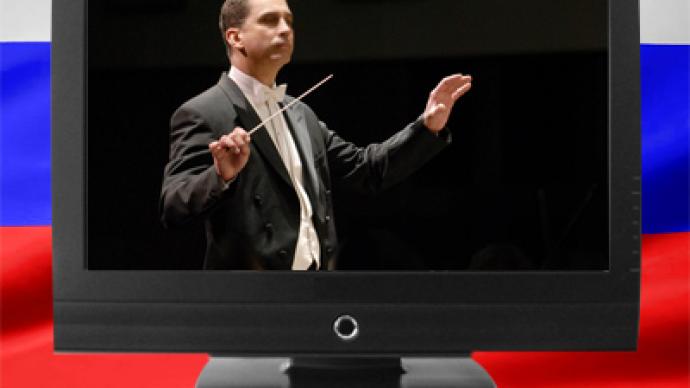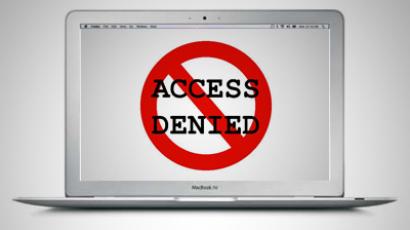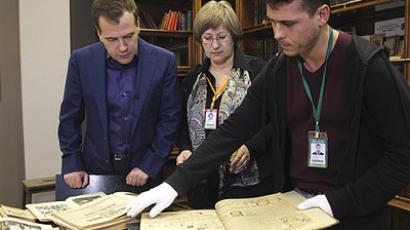Kremlin unimpressed by morality watchdog idea

The Kremlin is bewildered by the idea of creating a public watchdog to control morality in the media that was put forward by a number of prominent Russian artists.
“Introducing censorship – and that is nothing but censorship – is against the Constitution and does not correspond with the path of development for our country,” a source at the Kremlin told RIA Novosti. The very role of artists is to develop society and elevate its culture. The source stressed that the media should be limited “by a general level of societal development rather than censorship”. Earlier this week, several well-known Russian actors, writers and artists appealed to President Dmitry Medvedev and Prime Minister Vladimir Putin with a letter where they suggested establishing a public council that would monitor the media’s compliance with norms of morality. “Of course, that should be a non-governmental and non-commercial organization comprised of competent people trusted by our society,” one of the initiators of the idea, actor and film director Nikolay Burlyaev, told “Kommersant FM”. Those could include representatives from the Russian Orthodox Church, doctors, and even “intelligent people from law enforcement agencies”. Currently, he observed, there are no controls at all and when presenters are asked about the format of their shows, they say it is simply “blood and violence”. Artists underlined that the council’s control would “have nothing to do with political censorship” that was widely practiced in the Soviet times. It would be administered by public reprimands instead. The activists lament the decline in moral standards in Russian society, the loss of basic values and the rapid commercialization of culture. The media, the internet, cinema and literature keep artificially imposing values alien to Russians, their letter reads as published on the website of the“Golden Knight” Slavic forum. The artists criticize the state’s cultural policy, blaming it for the degradation of the society and rising crime rate. At the same time, not enough attention is paid to promoting patriotism and morality in the youth. Meanwhile, the letter states, attempts to rewrite Russian history and traditions continue. According to the cultural figures, the media – that often abuses freedom of speech – has greatly contributed to the worsening situation.They noted that doctors take the Hippocratic Oath, so “why don’t journalists undertake any moral obligations? As is generally known, a word can not only cure, but also kill a person,” the activists said. In that respect, they suggested working out an Ethic’s Code for journalists and filmmakers, who should work for the sake of strengthening rather than destroying historic moral values.“As for the statements by some media representatives and human rights activists over the unacceptability of any kind of control – it only proves that those people are interested in maintaining the destructive culture.” According to the head of the Presidential Council on Human Rights, Mikhail Fedotov, the initiative to establish the morality watchdog violates the law.“[The Russian] Constitution prohibits the creation of any censorship bodies,” he said, citing “Kommersant FM”. If it is all about monitoring, one can simply turn on the TV and monitor as much as one likes, he noted. The solution to the problem could be “the transformation of our state TV and radio broadcasting into public entities…just as it is done in the UK, Germany or France”. “I am afraid that the authors of the idea are not quite familiar with what is happening in the media today. Colleagues, wake up! The Ethics Code of Russian journalists was adopted in 1994 and is still in force,” Fedotov noted.The idea was also opposed by Russian bloggers, who have come up with their own open letter to artists which was published on LiveJournal. The web surfers did not go into long-winded explanations of their positions, but rather posted a laconic answer suggesting that artists simply “get lost”.














